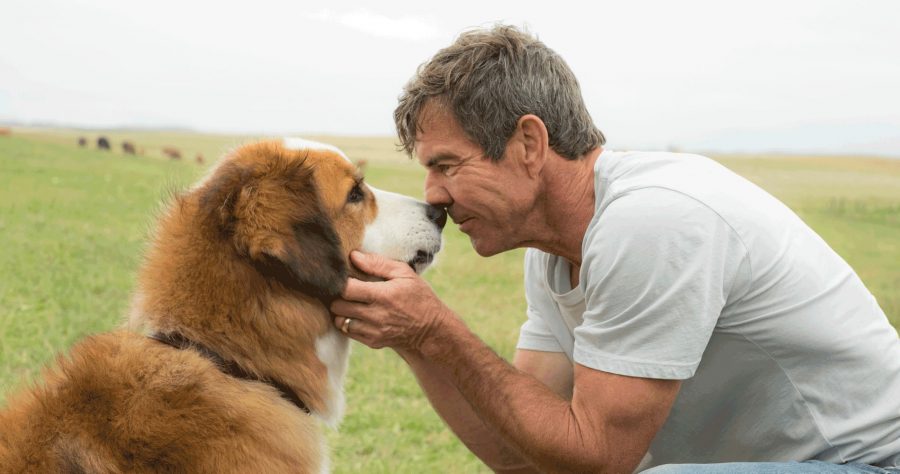Society must continue opposing ‘ruff’ treatment of animals
Dennis Quaid as Ethan in a scene from the movie "A Dog's Purpose" directed by Lasse Hallstrom. (Universal Pictures/TNS)
Jan 25, 2017
 Anyone who knows me knows that I love dogs. If you name a book that is about a dog, I have probably read it. If you mention a movie about a dog, I have easily watched it. If there is a meme involving a dog, it has definitely been shared on my wall. Twice.
Anyone who knows me knows that I love dogs. If you name a book that is about a dog, I have probably read it. If you mention a movie about a dog, I have easily watched it. If there is a meme involving a dog, it has definitely been shared on my wall. Twice.
For the last number of months, I have seen targeted ads on Facebook, YouTube, Snapchat and even Spotify previewing “A Dog’s Purpose.” The movie supposedly chronicles the life of a dog as it gets reincarnated and interacts with various owners on a search to determine its place in life.
The trailer looks cute and fun, while also very serious and emotional. I had planned on seeing it when it came out.
And then last week, a friend of mine at another university shared a request to boycott the showing of this movie on her campus to her Facebook wall. A video was leaked of a German Shepherd who is in the movie looking petrified as he was made to enter fast rushing water.
Like so many other things today, individuals were quick to jump to social media to advocate boycotting the film and to call out the individuals involved in production for being complicit in abuse of animals.
Get The Daily Illini in your inbox!
Over the next few days, people came to the defense of the movie team saying there were many factors not seen in the original footage. Some actors and actresses and crew members involved in production stood by the show. They said there were divers under the water, the water was warm, the dog had been trained for this and they saw to it that all the dogs used in the movie were well cared for.
This week, the film’s producer, Gavin Polone, released a thorough account of what he saw after reviewing all the footage in trying to understand the leaked video. He explained that in the clips shown, they changed the dog’s point of entry from earlier and final takes, and when they switched back to the original plan the dog was happy to jump in.
He also explained his past disappointment with the American Humane Association and their failure to step in if they saw something wrong. Instead, they held onto the footage for over a year, only releasing it days before the movie came out to the public in an attempt to stir controversy and raise funds.
All of these claims may be valid, but when you watch the footage that leaked it’s very hard to not feel upset. And there were still others involved in the show equally disappointed by what they saw.
This is not the first movie where an animal has played a prominent role. Not by a long shot. And I certainly have not seen anywhere near this much public buzz online over the possibilities of there being abuse in other films.
And if you start doing research, this is not the only movie with an unclear history. Reports say that a tiger nearly drowned filming “Life of Pi,” and over 20 sheep, goats and other animals died filming “The Hobbit.”
Our mainstream society has shifted to be more aware of animal rights. From vegan and vegetarian diets, to clothing companies being more explicit in where their materials come from, to university clubs and even classes promoting these values and teaching of societal issues, these changes show a shift in conscience that should be encouraged.
While we may not all be certain how to respond to this movie, I believe the social media uproar in this case can lead to positive change moving forward in how animals are incorporated into the film industry.
Many people are familiar with the cliche deep voices on quick videos that say “no animals were harmed in the making of this video” — we should help ensure this actually is an upheld status quo in the media and entertainment industry.
Hayley is a sophomore in ACES.






